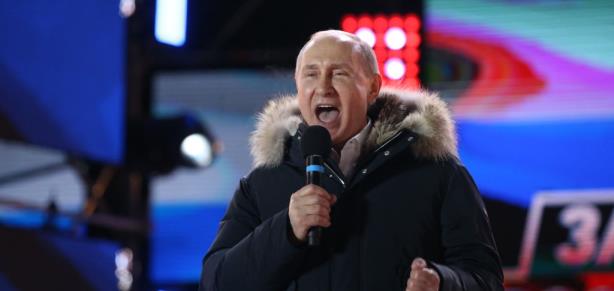
While Vladimir Putin’s reelection as President of the Russian Federation was predictable, what the Russian leader will do in his fourth presidential term remains uncertain. Putin’s choices could have significant consequences for not only Russia, but also the United States, its allies, and Russia’s neighbors, as well as for Syria and the Middle East.
Personnel Changes?
The most immediate question is whether the Russian president will make significant personnel changes in Russia’s government or presidential administration. So far, he has deflected such questions, stating that he is thinking about personnel matters but that he will make no announcements prior to the start of his new term in early May. However, the fact that many key foreign policy officials have held their posts for 10 years or more, beyond Russia’s typical retirement age, suggests that some changes are likely.
New individuals in important posts—or a new or substantially new team—raise two sets of questions. First, will any new appointees share their predecessors’ policy views? Although Mr. Putin is ultimately the sole decision-maker on Russia’s foreign and national security policy, his subordinates can shape his perspective on at least some issues. Beyond this, if new officials have different perspectives, to what extent does this represent a deliberate decision or, for that matter, an effort at signaling Russia’s population and international audiences?
The second question is whether Mr. Putin selects people with established public profiles or, alternatively, whether he extends the approach he took to many domestic policy positions during his third term by appointing younger, less well-known officials. This matters because individuals with existing public reputations and political constituencies (even if modest in comparison with Putin’s own) can have somewhat more influence on policy. People without a public profile would be more dependent on Russia’s president and, therefore, less flexible.
Policy Changes?
Looking at domestic policy and particularly at the economy, Russians are not too satisfied with Prime Minister Dimitry Medvedev or his government; disapproval of each is approaching 60% in the Levada Center’s polling. While Russia’s economy returned to slow growth in 2017, the last three years saw small declines. Mr. Putin has so far been able to blame this poor performance on Western sanctions and on low energy prices, limiting the economy’s political impact, but it is not clear how long he will be able to do so. Conversely, however, it is also not clear how Russia can pursue necessary but costly economic reforms when its access to Western financing is limited. This in turn limits what new officials—no matter how committed they may be to reforms—can accomplish.
To the extent that Russia’s economy remains stagnant, Putin’s ability to mobilize public support will remain important. Nevertheless, it is difficult to foresee how Russia’s weak economy may affect Russia’s foreign policy. One school of thought is that economic hardship and accompanying popular dissatisfaction will force Putin to moderate Russia’s foreign policy; this is one objective of US and European sanctions, though the sanctions have not yet produced visible results. Another school of thought is that the Kremlin can maintain political support only by pursuing a more assertive foreign policy, doubling-down on Russia’s proud international opposition to the United States. If this is the case, the Kremlin would likely attribute economic problems to Western efforts to weaken Russia, as it has done in the past, and hope that regular changes of prime ministers and economic ministers will both defuse public anger and sustain existing public tendencies to blame the government for the economy rather than Putin himself.
Will Putin’s Fourth Term Be His Last?
Perhaps the most interesting questions about Putin’s fourth presidential term are whether it will be his last and, if so, how Russia’s leader will manage the transition to a new president. In 2008, Mr. Putin heeded a provision of his country’s constitution barring him from serving a third consecutive term as president and stepped down to become a very influential prime minister. Will he do so again? When asked this question during a post-election press conference, Putin implied that he would step down but did not give a wholly clear answer, as a literal interpretation of his words foreclosed staying in office until he reached one hundred years old without addressing whether he might remain president until he reached his late seventies, as would be the case if he sought a fifth term (until 2030).
Uncertainty surrounding Putin’s intent seems likely to become a growing political problem as he nears the end of his fourth term in 2024. On one hand, if Russia’s president continues to imply that he will leave, he will stoke competition to succeed him. He will also eventually become what Americans call a lame-duck president: a leader politically weakened by widespread expectations of departure from high public office. On the other hand, if he signals clearly that he will stay, or if he implies that he will leave and then changes his mind later, he could provoke a backlash from Russians who are ready for a new leader and assume that they will finally get one in six years. Neither of these paths will be easy, even for a politician as experienced and as powerful as Putin—something that might make it harder for him to take any chances in pursuing unpopular policies. Outside observers can do little other than watch and wait.
